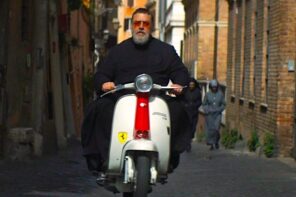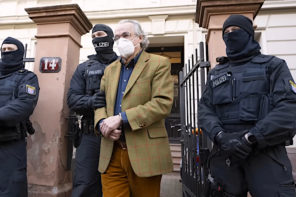With all the diplomatic comings and goings in Vatican City, L’Osservatore Romano, the Vatican weekly newspaper, is kept busy reporting on which diplomats are leaving, which new ones are arriving, what members of the Church hierarchy are retiring, and so on.
The descriptions of new arrivals to their diplomatic posts at the Vatican are especially interesting since they always begin with the same three markers: how old the ambassador is, whether he or she is married, and how many children they have. Just last week, for instance, we learned that Fernando Felipe Sánchez Campos of Costa Rica is 36, married, with two children. And we learn that Gábor Győriványi of Hungary is 51, married, with four children.
Yet there may be a more subtle rationale to this standard formula of diplomatic description than the simple recitation of facts.
The arrival of new diplomats in Vatican City has also birthed a sort of new genre, the formal papal welcome; one that the current Pope has utilized to remind his new partners of just how un-modern, and even anti-modern, their new diplomatic home is. Modernity, after all, is characterized by this Pope as a moment of restless and breathless innovation, in contrast to his conception of the tradition-minded Church which involves passing on, unchanged, the wisdom we’ve inherited from our predecessors.
We are merely links in a sacred chain. And the solder in those links, it now appears, is monogamous, heterosexual marriage.
To that end, on December 3, Benedict XVI reminded Fernando Campos that “the family is an institution which, perhaps more than any other, is suffering from the assault of the rapid changes in society and culture. Nevertheless it cannot lose its true identity since it is called to be a nursery of human and Christian virtues…”
That was the message the Pope chose to present to a significant New World partner. But just one day before, the Pope’s message to a stalwart region of Eastern Europe and a relatively new member of the European Union was more pugnacious. In it, Benedict XVI explicitly appealed to the increasingly embattled concept of a European identity.
Marriage and the family constitute a decisive foundation for the healthy development of civil society, countries and peoples. Marriage [is] a basic form of ordering the relationship between a man and a woman… marriage has given Europe its particular aspect and its humanism, also and precisely because it has meant continuously learning and achieving the characteristic of fidelity and self-denial that this implies.
Marriage as a training ground for fidelity and self-denial: this sober conception of marriage is nothing less than what has made Europe distinctively European (and distinctively humanist). That is the cultural gauntlet the Supreme Pontiff throws down in the very next sentence.
Europe would no longer be Europe if this basic cell of the social fabric were to disappear or to be substantially transformed.
In other words, the current debate about the nature and the future of state-sponsored heterosexual marriage is ultimately a question that concerns the European identity itself. The stakes, then, could scarcely be higher.
Why does this Pope feel the need to go to such lengths in defending such a traditionalist conception of marriage? Because, we may presume, marriage is currently under siege—especially in Modern Europe.
So what threatens this conception of marriage, in the Pope’s view? Three things, three items that he ticks off in the very next paragraph:
Marriage is threatened first by “the liberalization of divorce laws.” Second, it is threatened by “the ever more widespread custom of cohabiting without legal sanction and the protection of marriage.” And third, it is threatened by “the different forms of union that have no basis in the history of culture and law in Europe.”
Two things are noteworthy in this rather intense pronouncement at a state function. First, Benedict XVI clearly feels the current threat to the institutions of marriage in Europe is especially intense and, to the degree that the European identity is itself at stake in such an institution, especially grave.
But notice too that the casual invocation of European identity, culture, and law leaves out precisely what one might have expected the Pope to invoke in making such a sweeping argument: scripture and/or the Catholic tradition.
But he did not. He spoke simply of European customs and laws, European culture and identity.
Perhaps this Pope feels that the European and the Christian identity are coterminous and therefore he did not need to make the Christian arguments for marriage explicit. But this seems doubtful; the Pope knows that Europe is not Roman Catholic in any simple way.
More likely this Pope understands that the debate over marriage is the premier front in what does indeed amount to a “culture war.” So these are the surprising terms in which he chose to welcome his new partner from Hungary: he was welcoming him to a fight.




